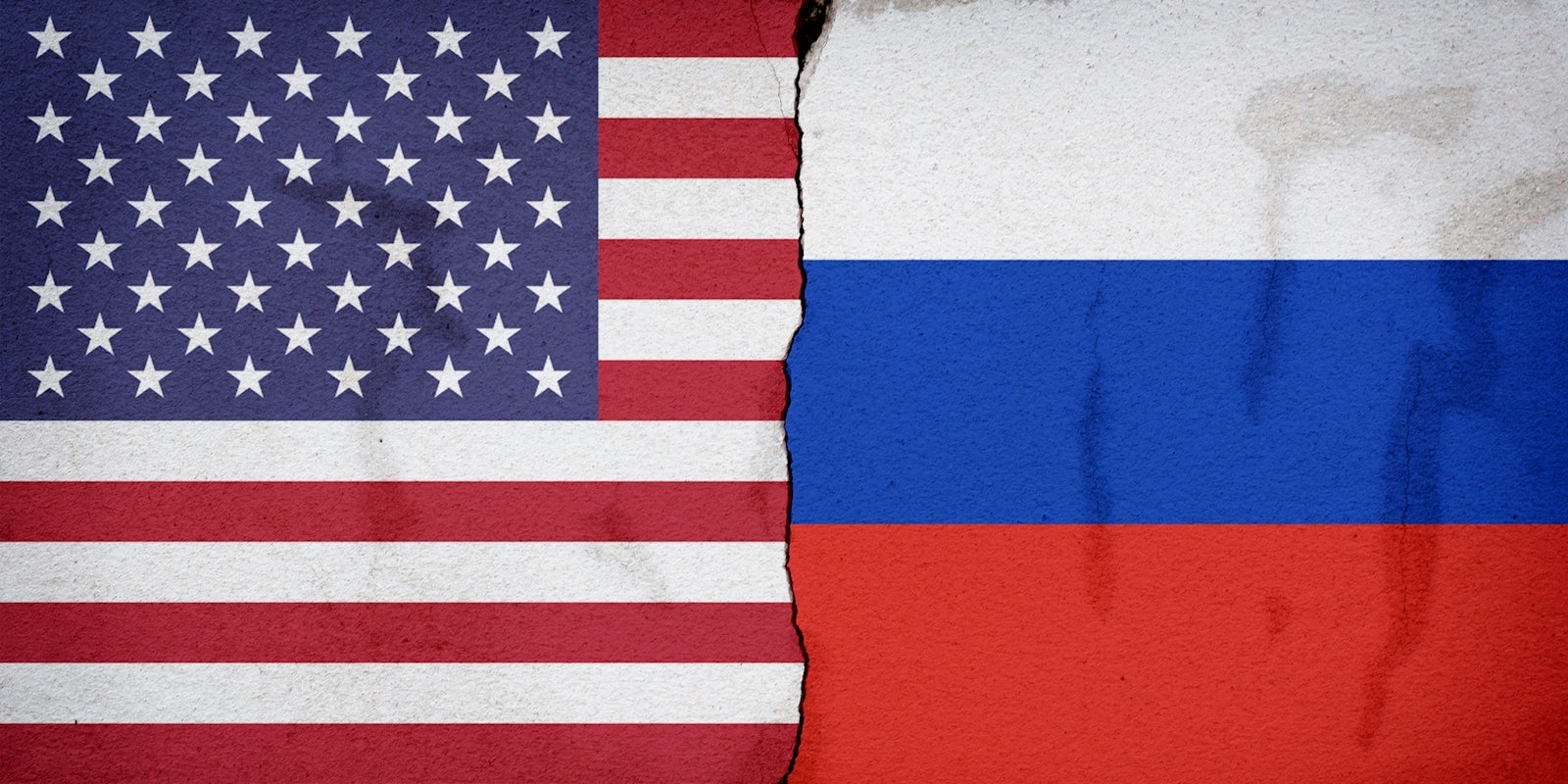When President-elect Donald Trump enters the White House next month, he’ll be forced to decide whether to undermine retaliatory sanctions against Russia imposed by the Obama administration on Thursday.
In what many Democrats (and, apparently, some White House aides) have described as a sluggish response, President Barack Obama took unprecedented steps to punish the Russian government for its interference in the United States presidential election. The White House expelled 35 Russian intelligence diplomats from the U.S., and it imposed sanctions on nine Russian individuals and entities.
Among the individuals penalized are four top officers of Russia’s foreign military intelligence unit—the GRU—whom U.S. intelligence agencies believe are responsible for ordering the cyberattack against the Democratic National Committee and other U.S. political entities, which was revealed this summer. Also sanctioned was the GRU itself, alongside Russia’s principal security agency, the FBU, in addition to three private corporations said to provide material support to the GRU.
Today, Treasury sanctions two individuals for malicious cyber-enabled activities. https://t.co/c4LKHoEhwZ pic.twitter.com/0M24mshs0f
— Treasury Department (@USTreasury) December 29, 2016
Two individuals on the sanctions list—Alexey Belan and Evgeniy Mikhailovich Bogachev—are wanted by the FBI.
Obama also amended an executive order, originally signed in April 2015, intended to expand the U.S. government’s authority to respond to significant cyber threats, including attacks designed to disrupt U.S. infrastructure, steal trade secrets, or misappropriate funds. The order now extends to malicious actors seeking to interfere with or undermine the American election process.
Finally, Obama announced it would shutter two Russian facilities, one in New York and one in Maryland, which officials say was used for “intelligence collection activities.”
Russia responded to the news by first attempting to belittle Obama in a meme-like tweet from the Russian embassy in the United Kingdom.
President Obama expels 35 🇷🇺 diplomats in Cold War deja vu. As everybody, incl 🇺🇸 people, will be glad to see the last of this hapless Adm. pic.twitter.com/mleqA16H8D
— Russian Embassy, UK (@RussianEmbassy) December 29, 2016
The Kremlin threatened retaliation.
BREAKING: Russian President Vladimir Putin’s spokesman says Moscow regrets new U.S. sanctions, will consider retaliatory measures.
— The Associated Press (@AP) December 29, 2016
Trump has continually cast doubt on the assessments of U.S. intelligence agencies that claim such election meddling could have only been orchestrated within Moscow’s highest echelons of power. “I think it’s ridiculous,” said Trump when reacting earlier this month to a Central Intelligence Agency (CIA) briefing, which claims Russian hackers set out specifically to aid his campaign—or more precisely, to decimate that of former Secretary of State Hillary Clinton, with whom Russian President Vladimir Putin has publicly feuded.
“I think it’s just another excuse,” added Trump. “I don’t believe it … No, I don’t believe it at all.”
https://www.youtube.com/watch?v=xDfvXq4OW9g
Moreover, Trump has criticized and belittled the intelligence agencies he will assume command over as of Jan. 20, telling the American people that they cannot be trusted. “These are the same people that said Saddam Hussein had weapons of mass destruction,” he said.
During a Wednesday evening press conference at his Mar-a-Lago resort in Palm Beach, Florida, Trump said of the Russian hacks, “We ought to get on with our lives.”
“I think that computers have complicated lives very greatly,” Trump added. “The whole age of computer has made it so nobody knows exactly what’s going on. We have speed. We have a lot of other things. But I’m not sure you have the kind of security that you need.”
Trump’s arbitrary remarks, however, are not the same thing as taking office and reversing Obama’s “proportional” sanctions, as the administration characterizes them. To do so would signal that a sitting U.S. president has zero faith in his own intelligence apparatus, which on Thursday released a detailed report laying out its evidence for Russia’s involvement in election tampering—a crisis that may ultimately benefit the Kremlin, not to mention a host of other unfriendly states.
Trump said in July that he would consider lifting sanctions against Russia, including those imposed against Russian state banks and corporations following the 2014 invasion of Ukraine. While the U.S. has thus far refused to recognize the annexation of Crimea, Trump has hinted in the past that he may be prepared to do so. (Veteran U.S. diplomat Henry Kissinger reportedly advised Trump to accept Russia’s takeover of Crimea in exchange for the removal of Russian soldiers from eastern Ukraine.)
The Trump transition team did not immediately respond to a request for comment. Following the White House announcement, Trump himself was noticeably quiet on Twitter, his preferred platform for communicating with the U.S. people.


